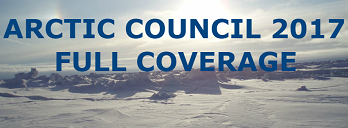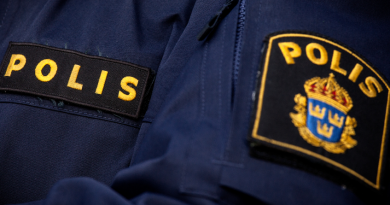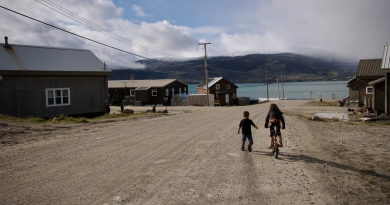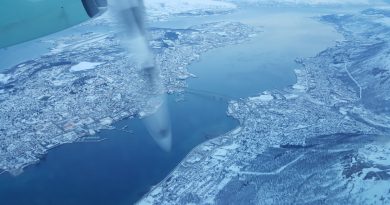Arctic nations sign scientific cooperation agreement
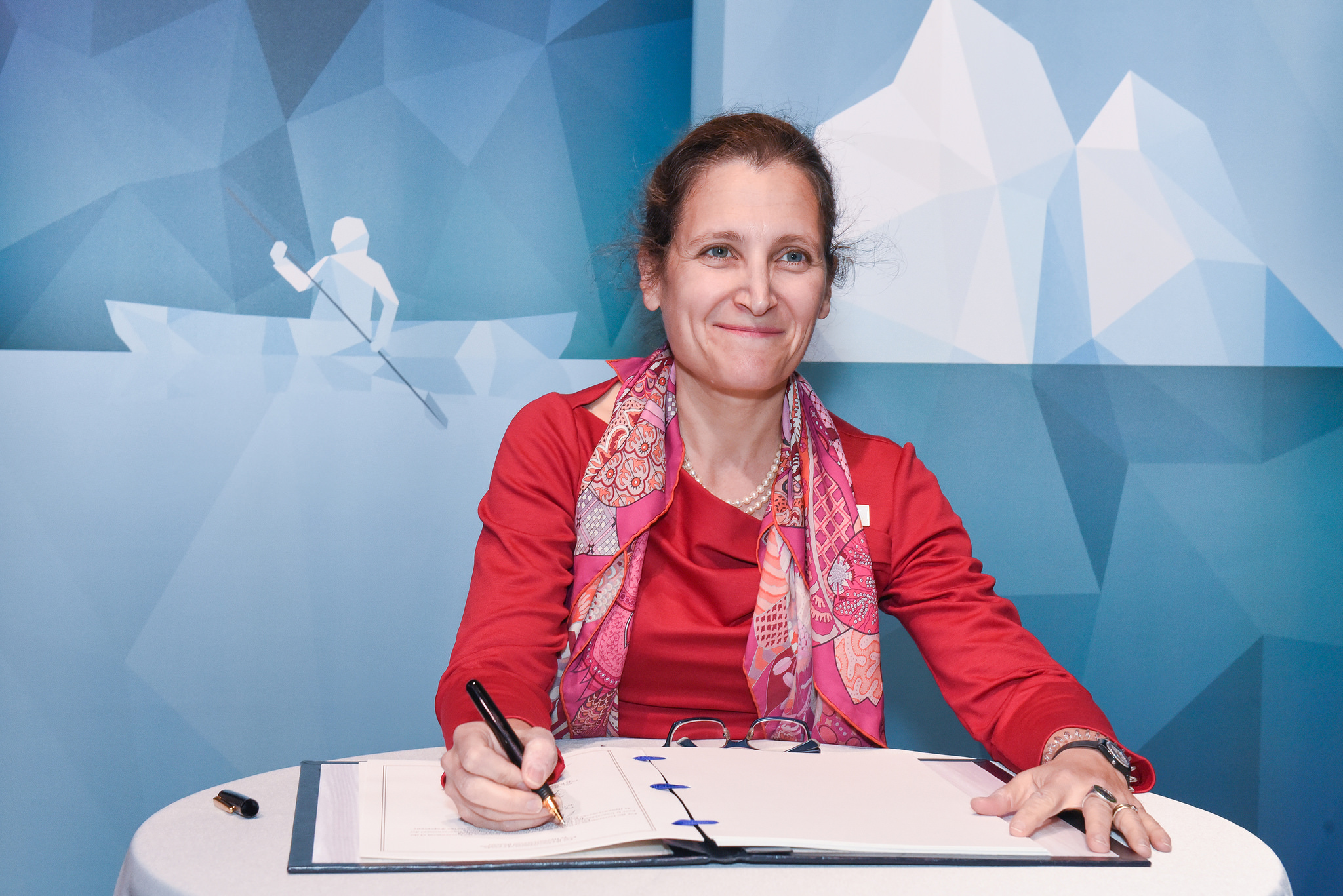
Canada and its seven Arctic neighbours signed a binding science cooperation agreement that aims to make it easier for the scientists from all eight circumpolar countries to collaborate with each other in their research in the rapidly changing region.
Foreign Affairs Minister Chrystia Freeland signed the Agreement on Enhancing International Arctic Scientific Cooperation on Canada’s behalf during the Arctic Council Ministerial Meeting in Fairbanks, Alaska today.
“The Agreement will reinforce Canada’s role as a leader in Arctic science and help attract international researchers to the Canadian Arctic,” Freeland said in a statement. “It will also facilitate Arctic scientific cooperation, which will help us make better decisions for Northerners and all Canadians.”
Freeland was accompanied at the meeting in Fairbanks by Canadian Indigenous Permanent Participants that include the Arctic Athabaskan Council (AAC), the Gwich’in Council International (GCI) and the Inuit Circumpolar Council (ICC).
Helping Arctic research
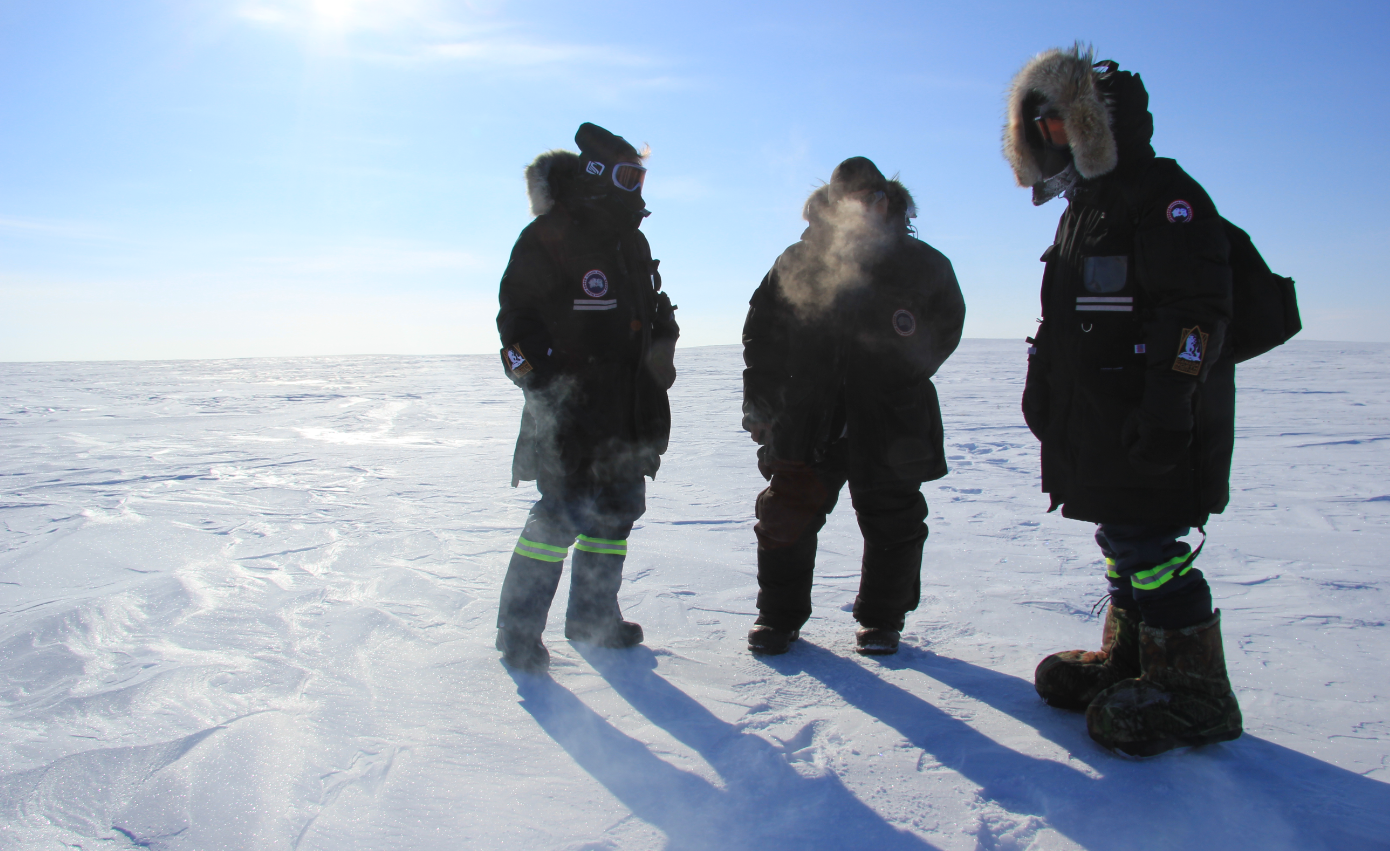
The agreement, which was negotiated among the eight Arctic countries, in consultation with six Indigenous Permanent Participant organizations of the Arctic Council, is expected to make it easier for scientists to travel, bring their equipment across national borders, conduct studies and experiments and share their research and expertise.
It also encourages scientists to use the traditional knowledge of Arctic’s Indigenous communities.
The agreement is expected to attract international researchers to Canada’s North, including to the Canadian High Arctic Research Station (CHARS) campus, which Polar Knowledge Canada (POLAR) will operate upon its completion in 2017, said a statement from Global Affairs Canada.
“Through this Agreement, Polar Knowledge Canada will strengthen its international leadership in ensuring that Arctic research reflects the rich history, traditions, expertise, knowledge and priorities of Northerners and Indigenous peoples,” Minister of Indigenous and Northern Affairs Carolyn Bennett said in a statement. “We are taking meaningful steps to make sure research about the North is led by the North.”
A legally binding agreement
It is the third legally binding agreement negotiated under the auspices of the Arctic Council, which brings together Canada, Denmark (for Greenland), Iceland, Finland, Norway, Russia, Sweden and the United States, as well as six Indigenous Permanent Participant organizations and a number of observer states and organizations.
The Arctic Council was established in Ottawa in 1996 with the Ottawa Declaration. Canada was the first Chair of the Arctic Council from 1996 to 1998 and again from 2013 to 2015.
The ministerial meeting in Fairbanks marked the end of U.S. chairmanship of the Arctic Council and the transfer of the two-year rotating chairmanship to Finland.
Related stories from around the North:
Canada: Canadian researchers count on Siberian reindeer herders to solve archaeological mystery, Radio Canada International
Finland: Finland looks to put education, environment at top of Arctic agenda, Yle News
Greenland: Q&A: Impact assessments in the Arctic – What Canada and Greenland can learn from each other, Eye on the Arctic
Iceland: Indigenous Peoples’ knowledge can help us prevent climate changes says Ban Ki-moon, The Independent Barents Observer
Norway: Norway’s foreign minister to visit Russian nuclear waste dump, The Independent Barents Observer
Russia: Barents cooperation leaders meet in Russia, The Independent Barents Observer
Sweden: Sweden launches UN Security Council presidency with a New Year’s resolution, Radio Sweden
United States: Arctic Ocean on track to be ice-free in summer by 2040, say scientists, Alaska Dispatch News
The Arctic Council chairmanship moves from the United States to Finland on May 11, 2017 in Fairbanks, Alaska. Eye on the Arctic’s Eilís Quinn along with EOTA media partners and contributors will be bringing you stories, interviews and analysis leading up to the handover.
→ Read our full coverage here!

